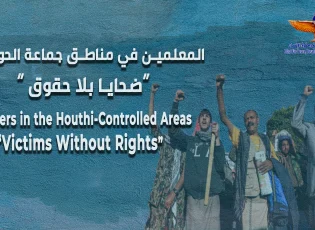The launch of the report on the human rights situation in Egypt in light of the recommendations of the periodic review
The Egyptian Alliance for the Periodic Review holds a rally at the United Nations headquarters in Geneva
Aqeel: Dialogue is our way to push the government to adhere to the recommendations and improve human rights conditions
Jad El-Karim: We adopted Chucky's approach to preparing the report to express the vision of 229 diverse organizations
Al-Talawi: Report Monitoring Decriminalization of Domestic Violence and Child Labor
Osman: The coalition is the most important component of the UPR project that Maat is implementing
Amid a large presence of representatives of missions, UN officials, media professionals and civil society organizations, the Egyptian Civil Society Organizations Coalition for the Universal Periodic Review held a symposium at the United Nations headquarters in Geneva on the sidelines of the 34th session of the United Nations Human Rights Council on Thursday 23 March 2017.
The symposium witnessed the unveiling of the report prepared by the coalition to assess the human rights situation in Egypt in light of the recommendations of the universal periodic review, ”which covers the period from March 2015 to the end of January 2017, which is a mid-term evaluation report to monitor the extent of the Egyptian government's commitment to implementing the recommendations it accepted during the review process. U-League two years ago.
The symposium began with a word of welcome and introduction to the alliance to Professor Ayman Aqil, President of the Maat Foundation for Peace, Development and Human Rights, and Secretary General of the Alliance, during which he indicated that the coalition is an important way out of the outputs of the UPR project as a tool to improve public policies during the transitional phase that the Maat Foundation is implementing with funding from the Union The European Union, and Aqeel emphasized that the methodology adopted by the coalition as a means to change and improve human rights conditions is "dialogue" and the separation between what is political and what is human rights, and working under the umbrella of the law even if its provisions are not favorable, while seeking to change these provisions by legitimate means.
After that, Aqeel addressed in a detailed speech some of the themes related to civil and political rights that were mentioned in the report, and pointed out that developments in the axes of combating terrorism, the behavior of law enforcement agencies, and the right to organize and peaceful assembly are characterized by their positive and negative aspects at the same time. The example is the multiplicity of incidents of referring officers involved in torture to trials and the issuance of harsh sentences on some of them, which is a positive feature, but the negative side is that the definition of the crime of torture has not been amended in the Penal Code yet.
With regard to combating terrorism, Aqeel said that the state in Egypt is fighting a real war against terrorism that threatens different regions of the world, and pointed to the need for the efforts of the international community to join forces and adopt a binding human rights document in order to combat violence, extremism and terrorism, but this must coincide with respect for human rights. And not to expand the circle of suspicion and reservation.
Dr. Walaa Jad Al-Karim, Secretary-General of the Partners for Transparency Foundation, Vice-Chairman of the Board of Trustees of the Alliance, and Reporter of the Report Preparation Committee, also spoke at the meeting, where he reviewed the participatory methodology that was used during the stages of preparing the report in order to express the views of all 229 members of the coalition, and indicated The report is based on the recommendations that the Egyptian government fully and partially accepted or took on knowledge of, and is divided into 25 axes covering all the issues subject to the recommendations, as each axis monitors the constitutional framework and the relevant legislative and procedural developments during the period covered by the report.
Gad al-Karim also addressed in his speech some of the themes mentioned in the report related to freedom of belief, freedom of opinion and expression, combating corruption, and economic and social rights, indicating the need for legislative frameworks for further amendment to cope with the requirements of fulfilling the Egyptian government's pledges before the universal periodic review mechanism in these axes, and he noted The public policies adopted, restructuring and financial reform processes had a tangible negative impact on government spending rates on social services, especially the health and education sectors.
Dr. May Al-Talawi, President of the Egyptian Leadership Foundation for Development and a member of the Alliance, spoke about the issues related to women, children, people with disabilities and youth in the report, noting that legislative developments were monitored regarding the fight against female circumcision and the educational rights of people with disabilities, and measures were adopted to address the issue of Street children, however, this was not enough. The problem of child labor in hazardous occupations still exists, and there is a lack of access for people with disabilities from work opportunities, and domestic violence against women is still not criminalized.
Professor Fatima Othman, Director of the Universal Periodic Review Project as a tool to improve public policies at Maat Foundation, presented a working presentation of the project and the technical support opportunities that it provides to Egyptian civil society organizations, and said that the coalition is the central activity of the project and works with complete independence through a board of trustees elected directly from its members, and she pointed out. The report will be available tomorrow on the website of the Maat Foundation for Peace, Development and Human Rights and will be sent to all stakeholders and stakeholders.
To view the report https://www.maatpeace.org/FNIVD
[foogallery id = ”21509 ″]












